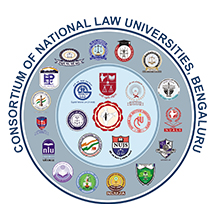
Immigration Law Course Details - Fees, Subjects, Syllabus, Duration, Eligibility, Career Scope
What is Immigration Law
Immigration Law course is a branch of law that governs laws about people belonging to any nation. When people visit or migrate to any foreign country, they are required to follow certain rules and regulations. These rules and regulations are governed under the immigration law course. It deals with the entry, stay or depart procedures from a country.
An immigration lawyer represents clients who need citizenship issues resolved. People are constantly moving from one country to another to live, work, and study within its borders. Immigration lawyers can assist individuals, families, and businesses in making the transition as smoothly as possible.
Many people who migrate to a country may face cases involving family law, criminal law, business law, or tax law. The statutes, rules, and legal precedents that govern immigration into and deportation from a nation are referred to as immigration law. Immigration courses are specialised law courses and aspiring candidates can pursue UG and PG law immigration courses specialising in Immigration Law.
Immigration Law- Important Dates and Events
- 7th December 2024- CLAT result out
- 9th December 2024-CLAT 2025 Counselling Registrations Started
Immigration Law Course Details
| Particulars | Values |
|---|---|
Branch Name | Immigration Law |
Degree | BA LLB, LLM, PG Diploma |
Duration | UG: 3-5 years PG: 2 years |
| Eligibility | LLB (Graduate with 50 per cent) Integrated LLB (10+2 with 50 per cent from a recognised board) LLM (Bachelor of Law Degree with 50 per cent of aggregate marks) |
Admission Process | LLB (Entrance exams like CLAT, AILET, LSAT) Integrated LLB (Entrance exams like CLAT, LSAT, AILET) LLM (Entrance exams like AILET, IPU CET) |
Top Entrance Exams | CLAT , CLAT PG, LSAT, AILET |
Top Colleges | ICFAI Law School, Guru Nanak Dev University, Amritsar, NLU Delhi - National Law University, Rizvi Law College, NLSIU Bangalore |
Career options | Professor, Immigration Lawyer, Immigration Advisor, Judge |
Average Salary | Rs 8 LPA |
Recruiting Companies | ICS Legal, Y-Axis Overseas, TCS, Infosys, and Lenovo |
What is an Immigration Law Course?
Immigration is a sub-discipline of law that includes rules and regulations that govern immigration. Some of the topics covered in Ithe immigration Law course curriculum are the History of Immigration Law, types of visas and permits available for to foreign nationals, the rights and obligations of immigrants, and role of international law in immigration.
Top Law NIRF Ranking 2024
Students are advised to choose the law institute based on the NIRF ranking 2024. Generally, National Law Institutes maintain top positions and rankings depending on the educational facilities and the institute's stature. In the table below, students will find a list of top Law institutes based on NIRF Ranking 2024.
| Top Law Colleges | NIRF Rankings (2024) |
|---|---|
1 | |
2 | |
3 | |
4 | |
5 | |
6 | |
7 | |
8 | |
9 | |
10 |
Specialisation or Similar One
The Immigration Law course is a specialised course within the legal field. The Immigration Law specialisation is offered in undergraduate and postgraduate law courses, including BA LLB, BBA LLB, BCom LLB, and LLM. Candidates who study immigration law can work as Immigration Lawyers.
Eligibility Criteria (UG & PG) of Immigration Law
The requirements for Immigration Law courses typically vary depending on the programme and college you choose. Students choose BA LLB or LLB programmes to enter the field of immigration. After completing a bachelor's degree in law, graduates can pursue the LLM programme. Candidates must fulfil the eligibility criteria for Immigration Law courses at UG and PG levels. In the section below, we have mentioned the eligibility requirements of the Immigration law course.
Eligibility Criteria for UG Courses
Fulfilling the eligibility criteria is very important for the students. Once fulfilling the eligibility criteria, candidates can apply at their desired institute. In the table below, we have mentioned the eligibility criteria for Immigration Law courses at the undergraduate level.
| Eligibility Parameters | Details |
|---|---|
Educational Qualification | 10+2 from a recognised Institute in India for an integrated law degree Bachelor's degree from a recognised institute in India to apply for LLB |
Minimum aggregate score requirements | 50 per cent aggregate score (5-10 per cent relaxation for candidates belonging to the reserved categories) |
Entrance Exams | Candidates need to appear for relevant entrance examinations (CLAT UG is a popular entrance exam). |
Top Entrance Examination for UG Courses
Many entrance examinations are conducted at university, state, and national levels for admission to undergraduate courses in the field of Immigration Law.
| Exam Name | Conducting Body | Exam Schedule |
|---|---|---|
Consortium of NLU's | ||
Pearson VUE | ||
NLU, Delhi | ||
State Common Entrance Test Cell - Maharashtra State | - |
Eligibility Criteria for PG Courses
Similar to undergraduate degrees in Immigration Law, candidates have to follow some eligibility requirements before applying for admission. Listed below are the eligibility details for postgraduate degrees in Immigration Law.
| Eligibility Parameters | Details |
|---|---|
Educational Qualification | LLB from a recognised institute in India |
Minimum aggregate score requirements | 50-60 per cent, of candidates belonging to the reserved categories may get some relaxation of 5-10 per cent |
Top Entrance Examination for PG Courses
CLAT PG is a popular national-level entrance examination conducted for admission to postgraduate courses. Many institutes also conduct their university-specific entrance examination
| Exam Name | Conducting Body | Exam Schedule |
|---|---|---|
| CLAT PG | Consortium of NLUs | CLAT PG Exam Schedule |
College Predictors VIEW ALL
Scope of Immigration Law in India and Abroad
Immigration Law has always been important in understanding the community. It is not always just one country, but studying law prepares residents to be better professionals all over the world. Pursuing law opens up a wide range of doors for immigration law jobs.
Everything requires some sort of legal agreement between the two parties, making law one of the most fertile fields in terms of career and LLM job opportunities. In addition, the law specifies the types of documents that foreigners must submit to obtain permission to travel throughout Indian territory.
Course Subjects
Immigration Law course is offered as an elective subject in undergraduate and postgraduate courses. The immigration courses help students understand the concept of immigration, regulatory framework, and others. The Immigration Law syllabus will vary from one online college to another and at the course levels. Here we have discussed the general syllabus and subjects of Immigration Law courses at UG and PG levels.
Immigration Law Syllabus at UG Level
Candidates can check the syllabus on the official website of the institute or the programme brochure. The table below highlights the subjects covered in the UG Immigration Law course syllabus.
| Meaning and Definition of Citizenship | Constitutional Provisions Regarding Citizenship |
| Meaning of Immigration | History Of Immigration Law |
| The Passport (Entry Into India) Act, 1920 | The Passport (Entry Into India) Rules, 1920 |
| The Registration Of Foreigners Act, 1939 | The Registration Of Foreigners Rules, 1992 |
| The Foreigners Act, 1946 | The Passports Act, 1967 |
Immigration Law Syllabus at PG Level
The table below highlights the subjects covered in the PG Immigration Law course syllabus.
| Introduction to Immigration Law | Removal and Deportation Proceedings |
| Asylum and Refugee Law | Citizenship and Naturalisation |
| Immigration and Constitutional Law | Immigration Policy and Reform |
Careers in Immigration Law
| Job Profiles | Job Description |
|---|---|
An Immigration Lawyer is in charge of representing individuals (clients) involved in the immigration process, which includes legal and illegal citizens, as well as refugees, who want to live in the country, start a business, or find work. | |
Immigration Advisor | An Immigration Consultant is someone who assists people in emigrating from one country to another by guiding them through the legal and documentation processes to increase their chances of immigration for study, work, travel, or business. |
Professor | Professors plan lessons and assignments and develop a curriculum that meets both college and department standards. They evaluate students' progress by grading papers and tests and advising students on which classes to take to achieve their objectives. |
A Legal Advisor is someone who gives legal advice, usually in an official capacity. In some countries, government officials who are qualified as lawyers (jurists) can be given the title of Legal Advisor. | |
A Judge is a public official who has the authority to hear, decide, and preside over legal matters brought before a court of law. In jury trials, the judge presides over the panel's selection and instructs it on relevant law. The judge may also rule on motions filed before or during a trial. |
Upcoming trends
Immigration law degree is an evolving field that studies the legal frameworks, policies, and regulations governing the movement of people across borders. This field of study involves a wide range of topics, including the entrance, residing, and departure of foreign nationals, the rights and obligations of immigrants and the receiving countries, and their citizenship or legal status.
In the past few years, various trending topics have evolved in the realm of immigration law, reflecting the dynamic nature of immigration policies and the socio-political context in which they operate. Some popular Immigration Law trending topics are Immigration Policy and Reform, Refugee and Asylum Seekers, and Technology and Immigration.
Job Profiles and Top Recruiters
Once graduating with an Immigration Law course, graduates will explore a variety of career prospects. They can work at various industries depending on their job roles. Students can also start individual practice and establish their own firms. Listed below are some of the top recruiters of Immigration Law.
Top Recruiters
- ICS Legal
- TCS
- Infosys
- Lenovo
- Y-Axis Overseas
Average Salary
Salary after an immigration law degree in UG and PG will vary depending on the specialisation candidates have chosen. The salary will vary depending on factors like experience, job profiles, sector, organisation, and location. The following table highlights the Immigration Law salaries based on different Immigration Law jobs.
| Job Profiles | Average Salary |
|---|---|
Immigration Lawyer | Rs 8.21 LPA |
Immigration Consultant | Rs 3.5 LPA |
Professor | Rs 3.05 LPA |
Legal Advisor | Rs 6 LPA |
Judge | Rs 12 LPA |
Required Skillset for Immigration Law
To pursue an immigration law career, a candidate must be an all-arounder. They are required to be well-versed in international affairs, international relations, current events, general knowledge, politics, and others. The following table shows some of the skills required to work as an immigration lawyer or to study immigration law.
- Objectivity
- Critical Thinking
- Problem-solving
- Analytical skills
- Debating skills
Course Curriculum for Immigration Law
The Immigration Law course curriculum provides students with an inclusive understanding of the legal principles, policies, and procedures concerning immigration law. The curriculum explores numerous aspects of immigration law, from the rights and responsibilities of immigrants to the procedures to enter and reside in a country, and the enforcement mechanisms from governments.
Students will learn various topics related to the Immigration Law courses curriculum such as Immigration law principles and concepts, Historical development of immigration laws and policies, Consumer protection law, Family Law, Special Contract, Constitutional law, Legal Theory, and Immigration and National Security
Frequently Asked Questions (FAQs)
Question: Why immigration is difficult in India?
Answer :
The immigration system is extremely selective. There are also immigration and country restrictions that prolong the wait for immigrants. Some countries have wait lists that are more than 22 years long.
Question: What is the average salary of an immigration lawyer?
Answer :
The average salary of an Immigration Lawyer in India is Rs 8 lakhs. The pay will increase with experience.
Question: Who are the top recruiters for immigration law graduates?
Answer :
Organisations and companies where immigration lawyers are recruited with handsome packages, include ICS Legal, Y-Axis Overseas, TCS, Infosys, and Lenovo, among others.
Question: Is immigration civil law?
Answer :
Immigration law is civil law, not criminal law, and it has the same protections as criminal law, such as the right to government-funded counsel.
Question: What are the career options after master's in Immigration law?
Answer :
Candidates after immigration law can become junior immigration lawyers and after getting work experience, they can become senior immigration lawyers.
Question: What are the levels of degree that can be studied under immigration law?
Answer :
Immigration law is a legal specialty there is no need for a separate exam for it. Candidates can pursue BA LLB, BBA LLB, BCom LLB, and other degrees in this field. Candidates can choose from one of these degrees to pursue.
Question: What are the rules of immigration in India?
Answer :
The national statutes, regulations, and legal precedents governing immigration into and deportation from a country are referred to as immigration law. Immigration is different from other issues such as naturalisation and citizenship.
Question: What is the immigration law in India?
Answer :
Immigration law governs regulations and policies related to immigration within a country. In terms of foreign citizens, immigration law is related to nationality law, which governs matters of citizenship. International Law administers Immigration Law in relation to a country's citizens.
Question: What is the place of immigration in India?
Answer :
A foreigner who is not an illegal migrant can also obtain Indian citizenship if he or she has been ordinarily resident of India for 12 years, where he or she should have resided for the 12 months immediately preceding the date of application and for 11 years in total in the 14 years preceding the application.
















